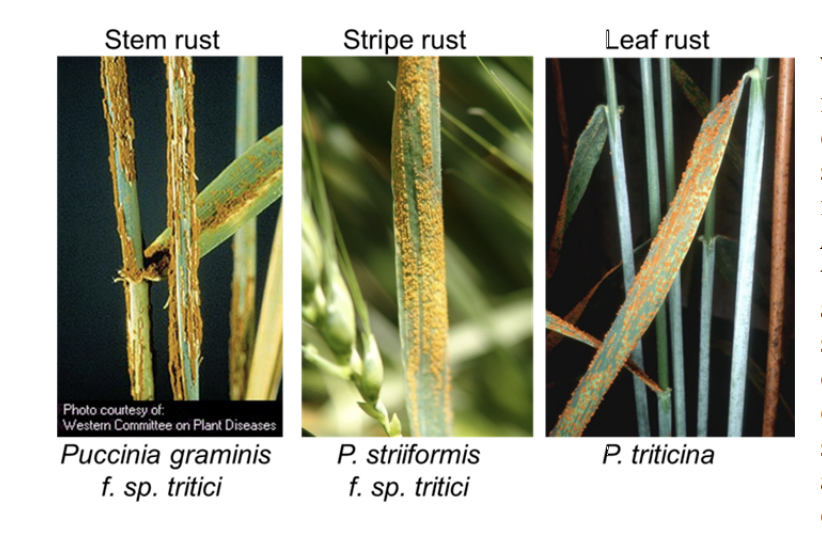Stem, Leaf, and Stripe Rust Resistance in Wheat
New germplasm has been developed based on a suite of homeologs to enhance bread wheat resistance to various rust pathogens.

Background:
Rusts are the most economically important fungal diseases in wheat. Stem rust, leaf rust, and stripe rust are the major forms, responsible for annual global costs estimated between $4.3 and 5 billion. The continual evolution of rust pathogens keep them at the forefront of wheat production concerns. Innovations that increase the natural resistance of wheat plants to rust diseases are desirable not only from economic and food safety perspectives, but also from environmental considerations associated with reduced needs for fungicide chemicals applications.
Technology Overview:
Montana State University has identified a suite of wheat homeologs responsible for transcription regulators and transcription factors that play key roles in stem, leaf, and stripe rust resistance in bread wheat. Silencing specific genes greatly reduces rust colonization independent of other known rust resistance genes. The first of three major findings has been incorporated into new wheat germplasm and offers new resistance to races of stem, leaf, and stripe rust pathogens. The other two major findings offer benefits specifically against stem rust.
Benefits:
- Natural (non-GMO) reduction of rust colonization on bread wheat plants
- Increased yield through reduced rust impact on plant growth
- Reduced input costs through reduction or elimination of fungicide applications
- Improved environmental health and worker safety through reduction or elimination of fungicide applications
Opportunity:
- Available for license
- Potential to collaborate in ongoing research
- Germplasm available
IP Status:
- Provisional patent application filed
Contact:
Daniel Juliano
(406) 994-7483
daniel.juliano@montana.edu
